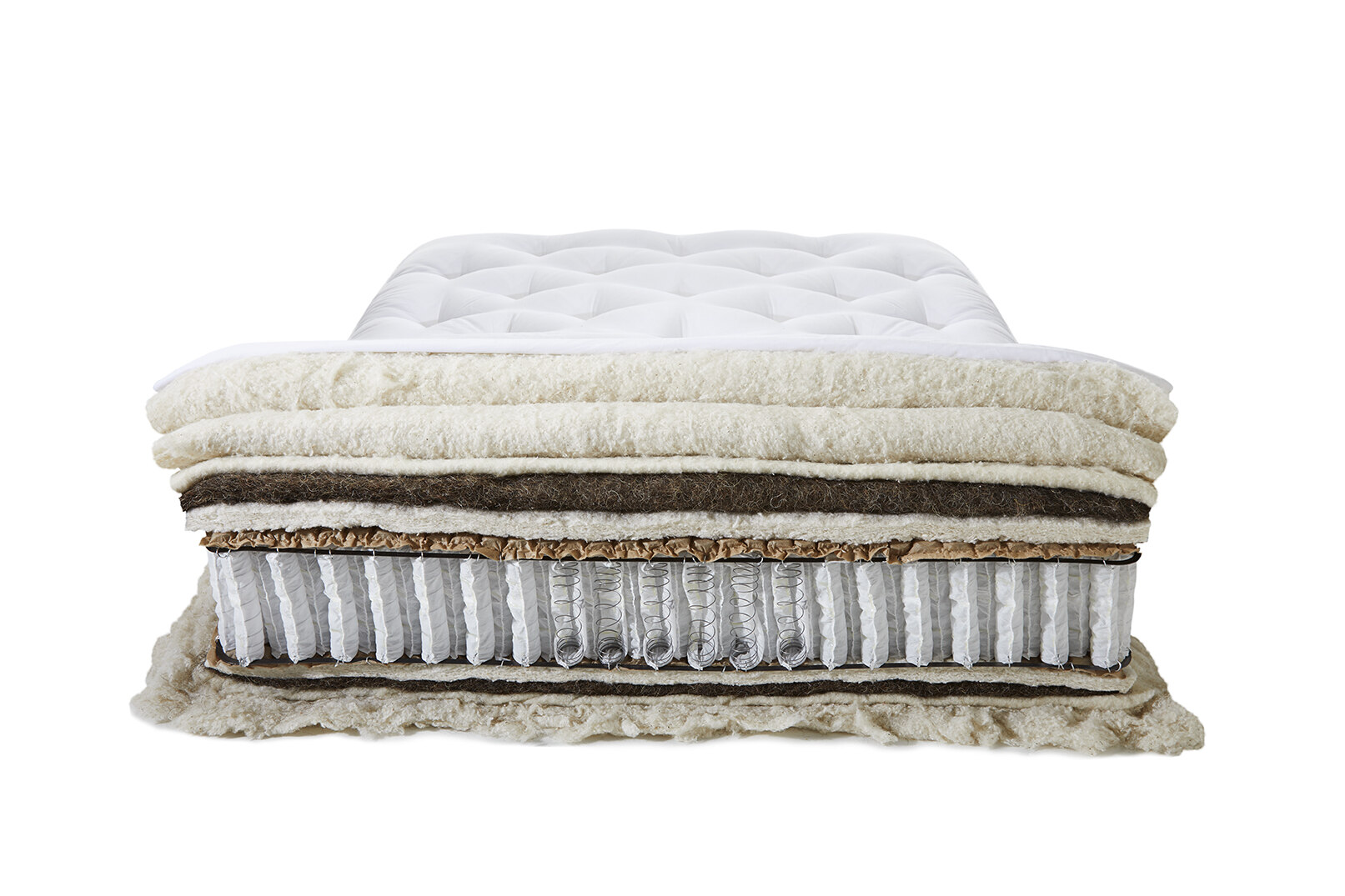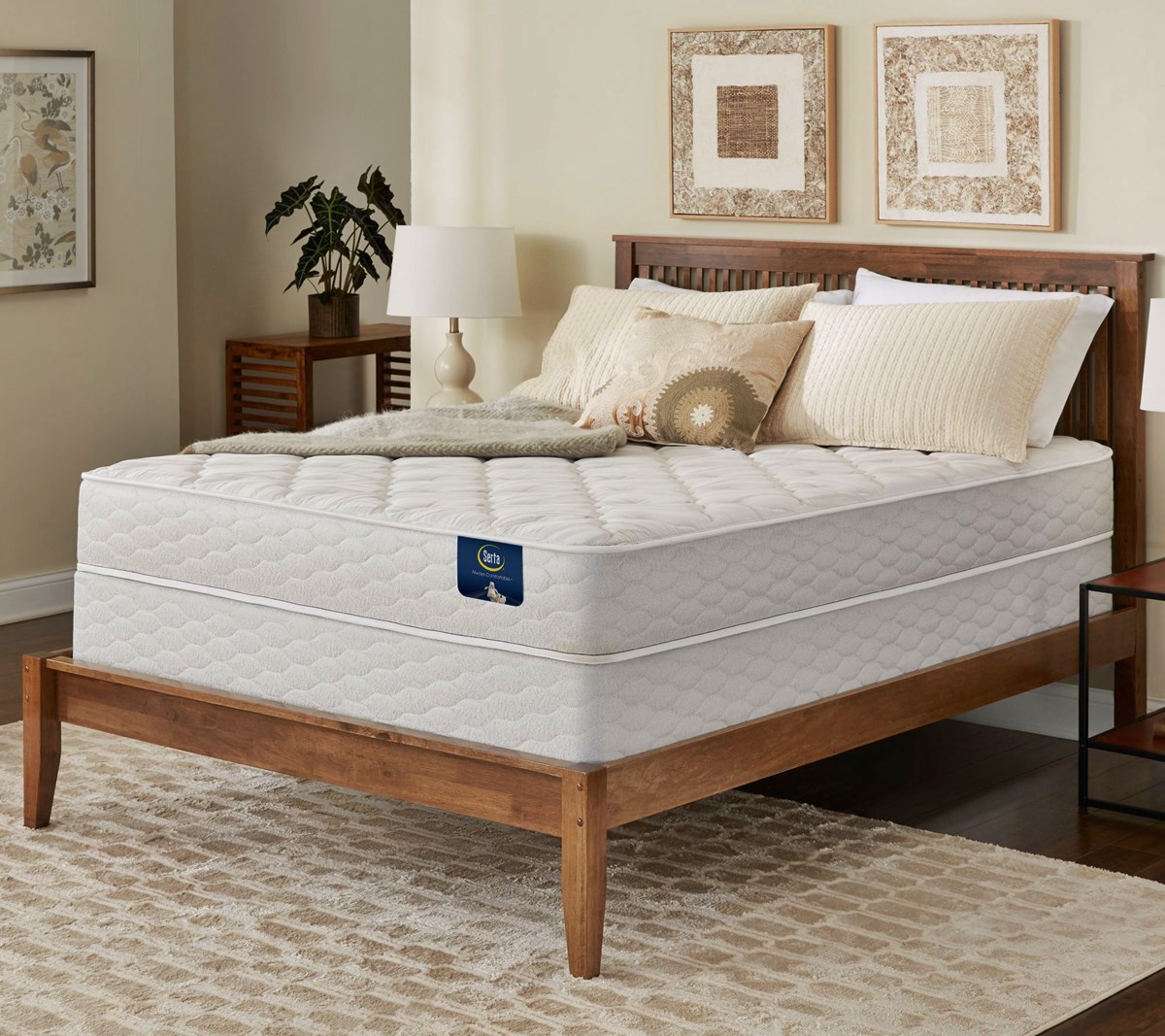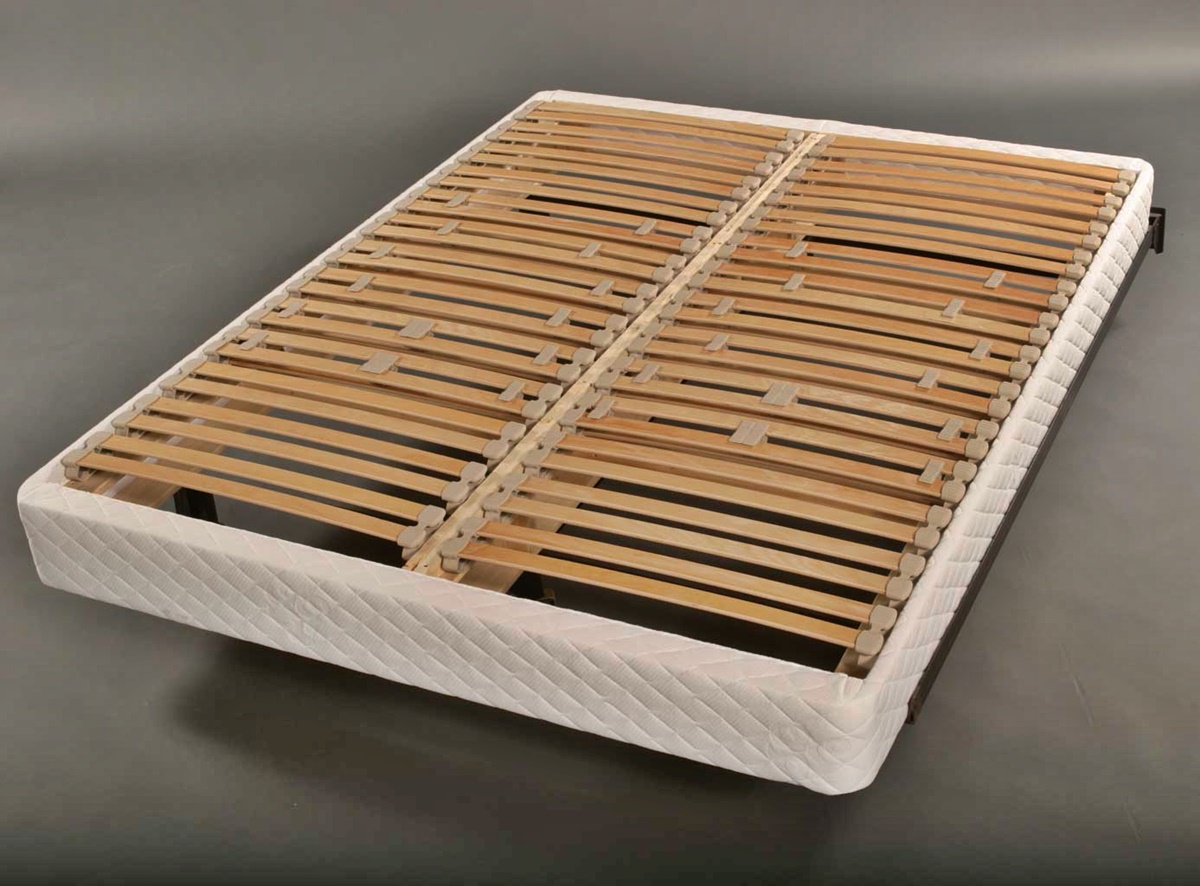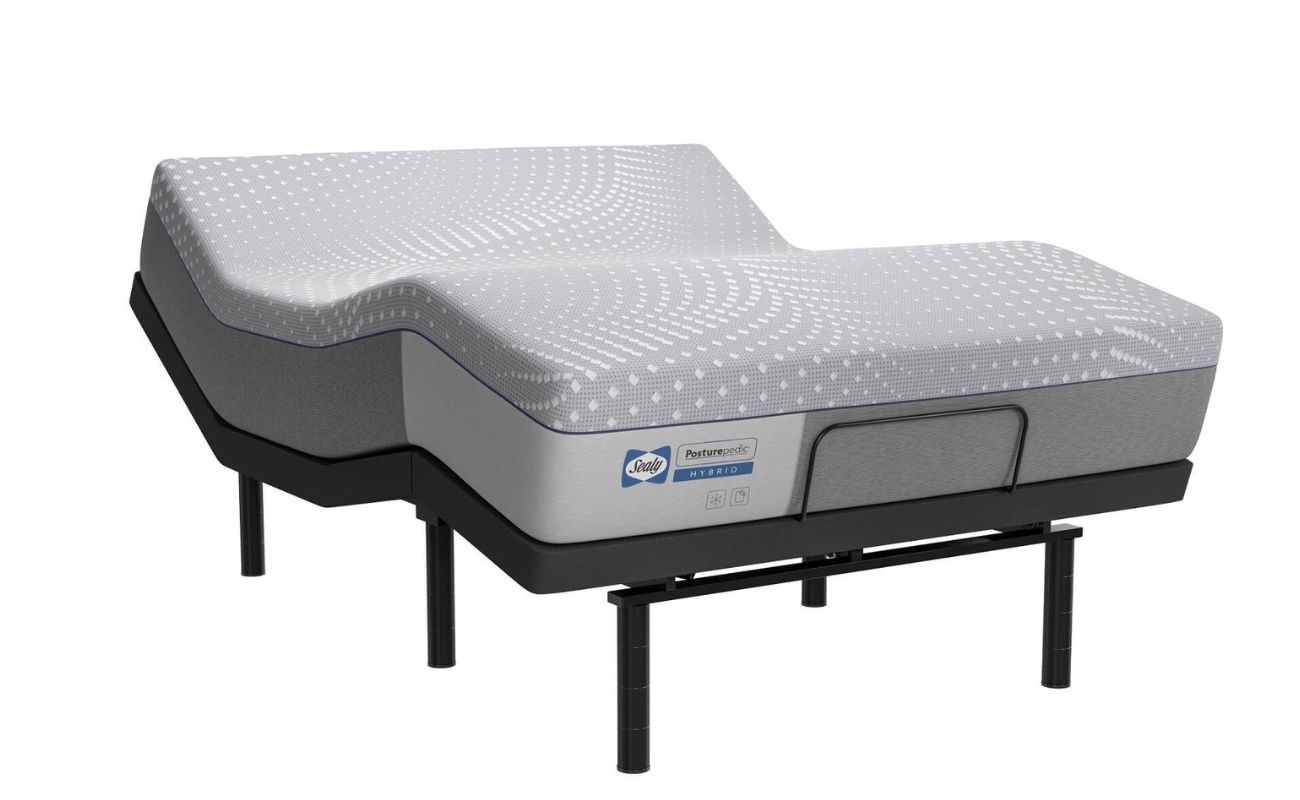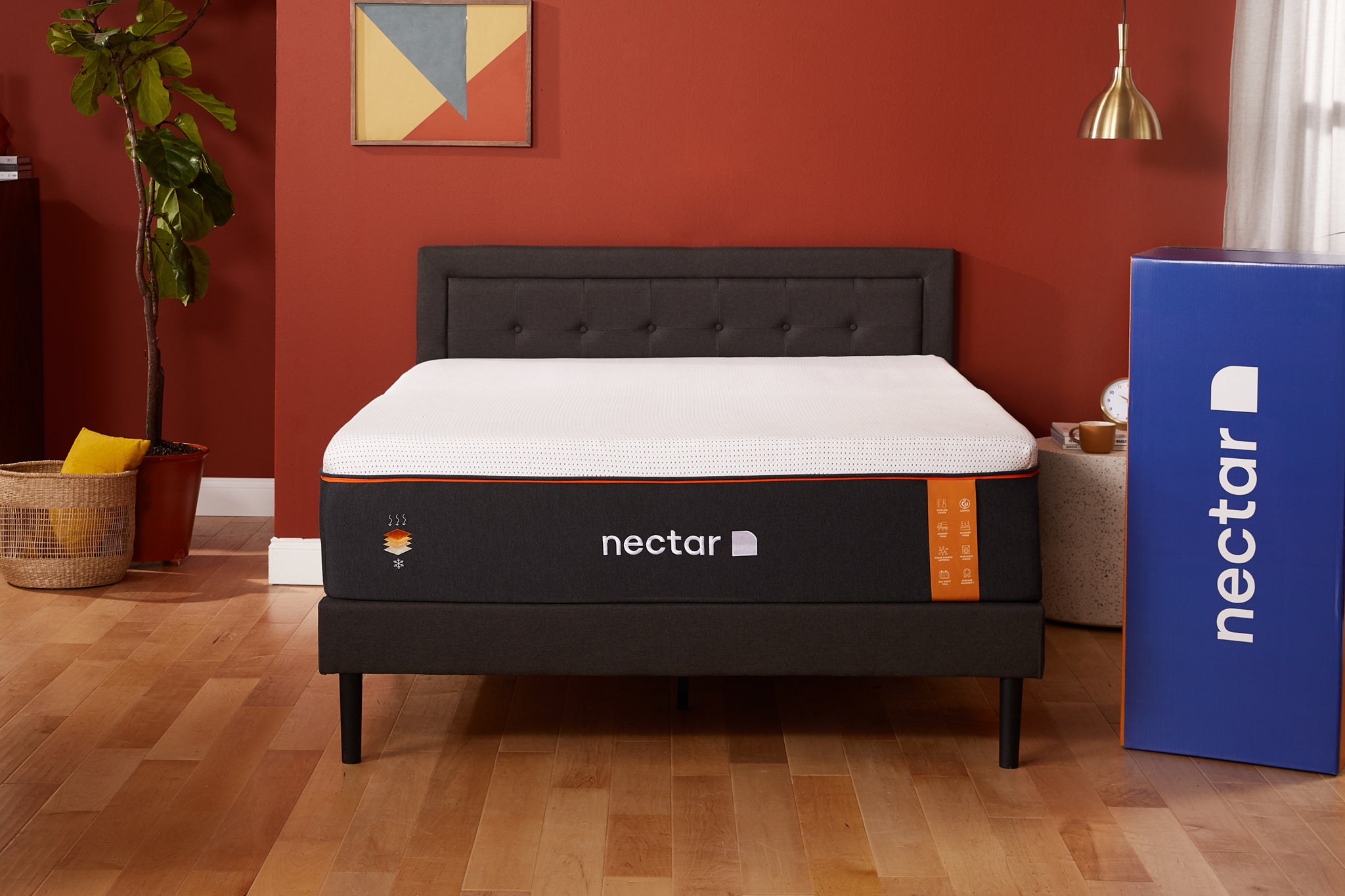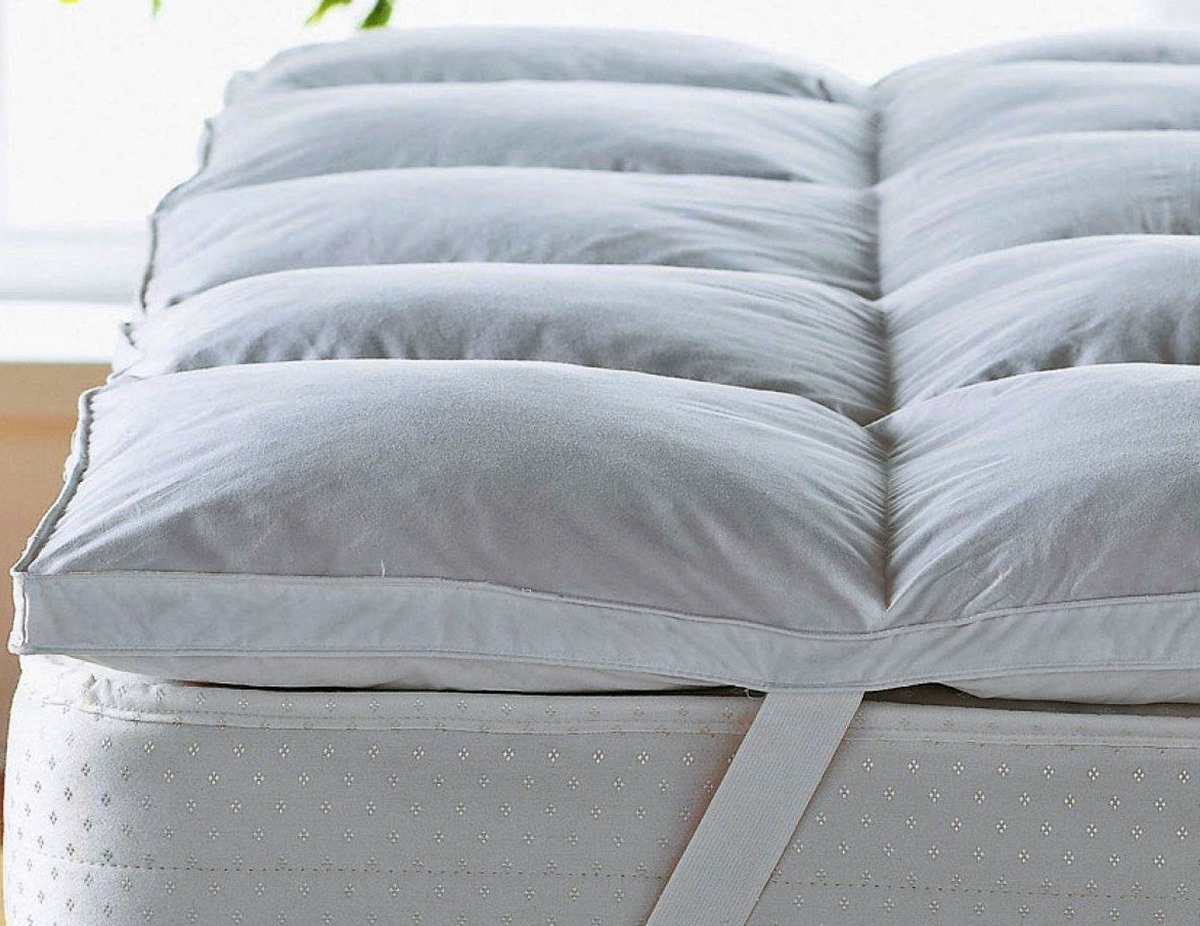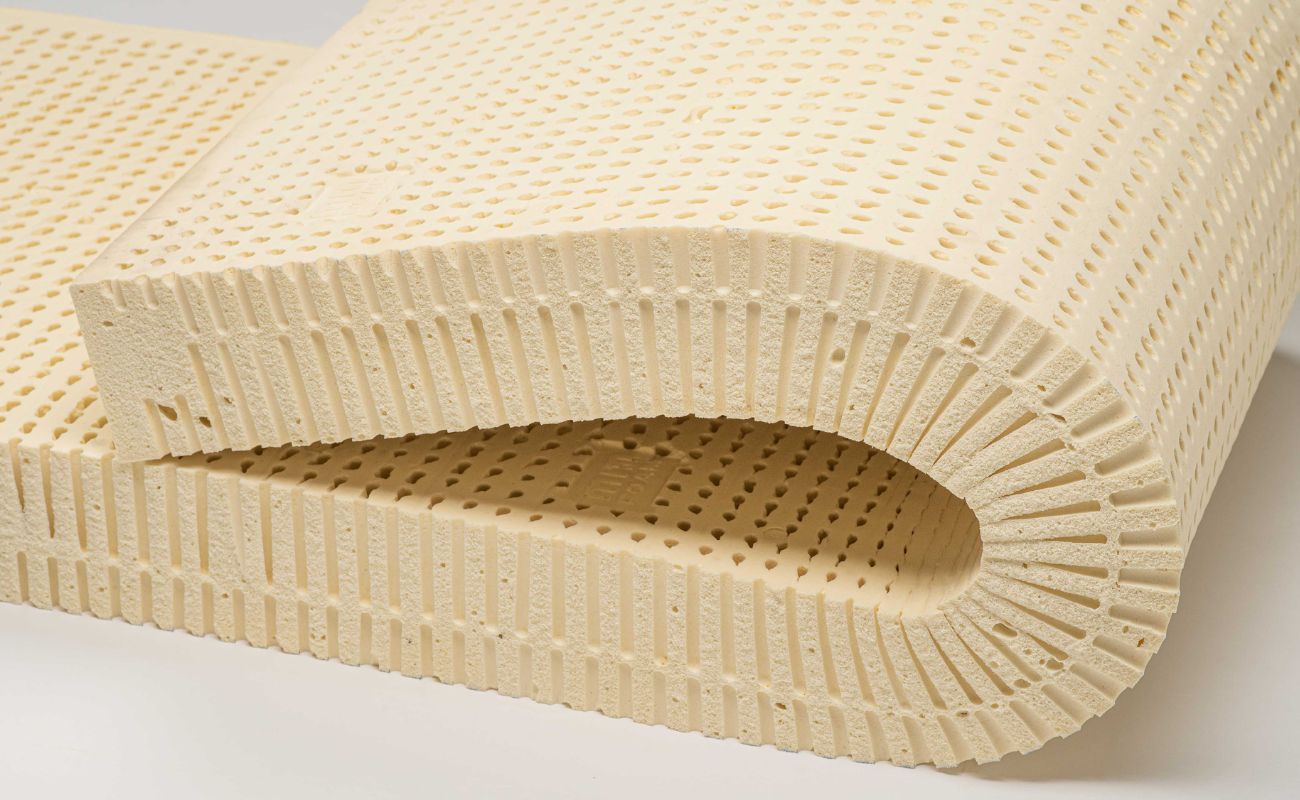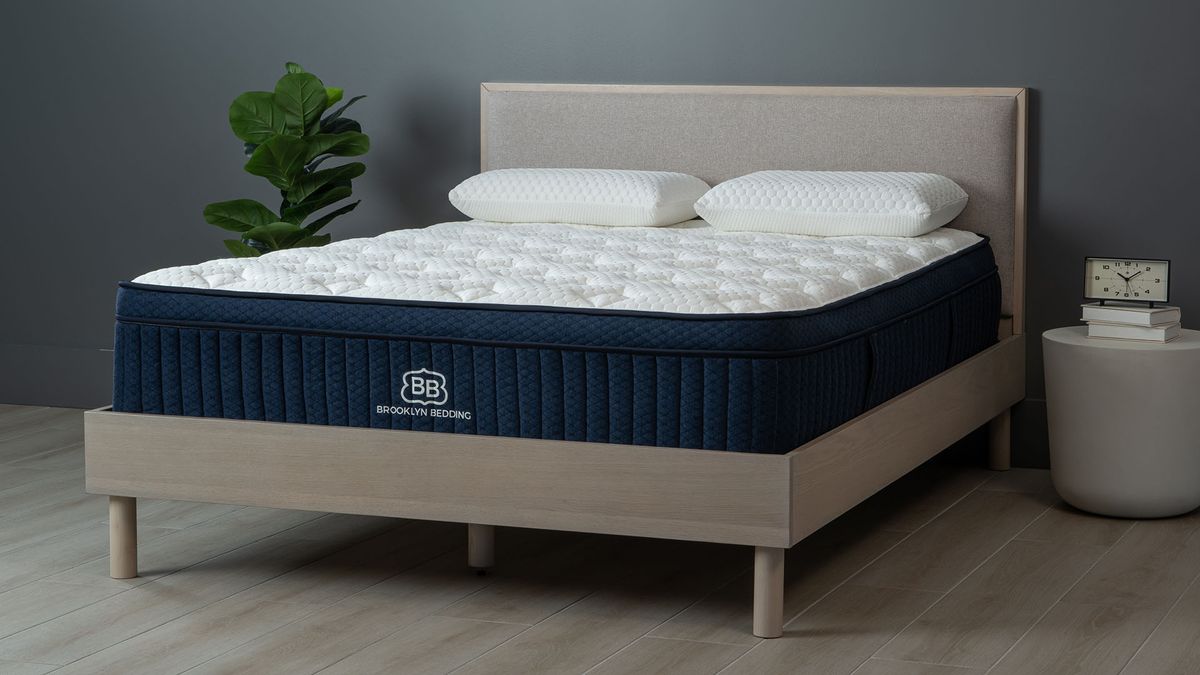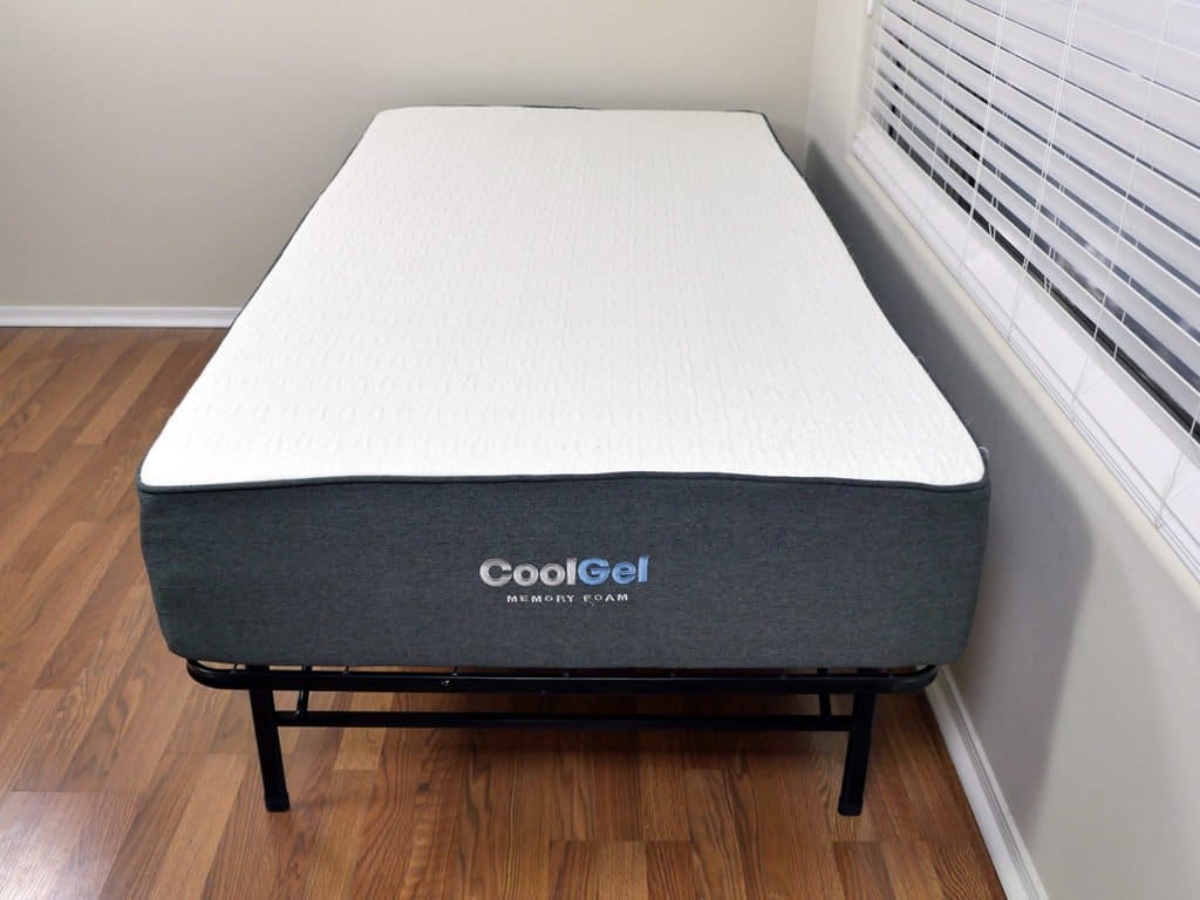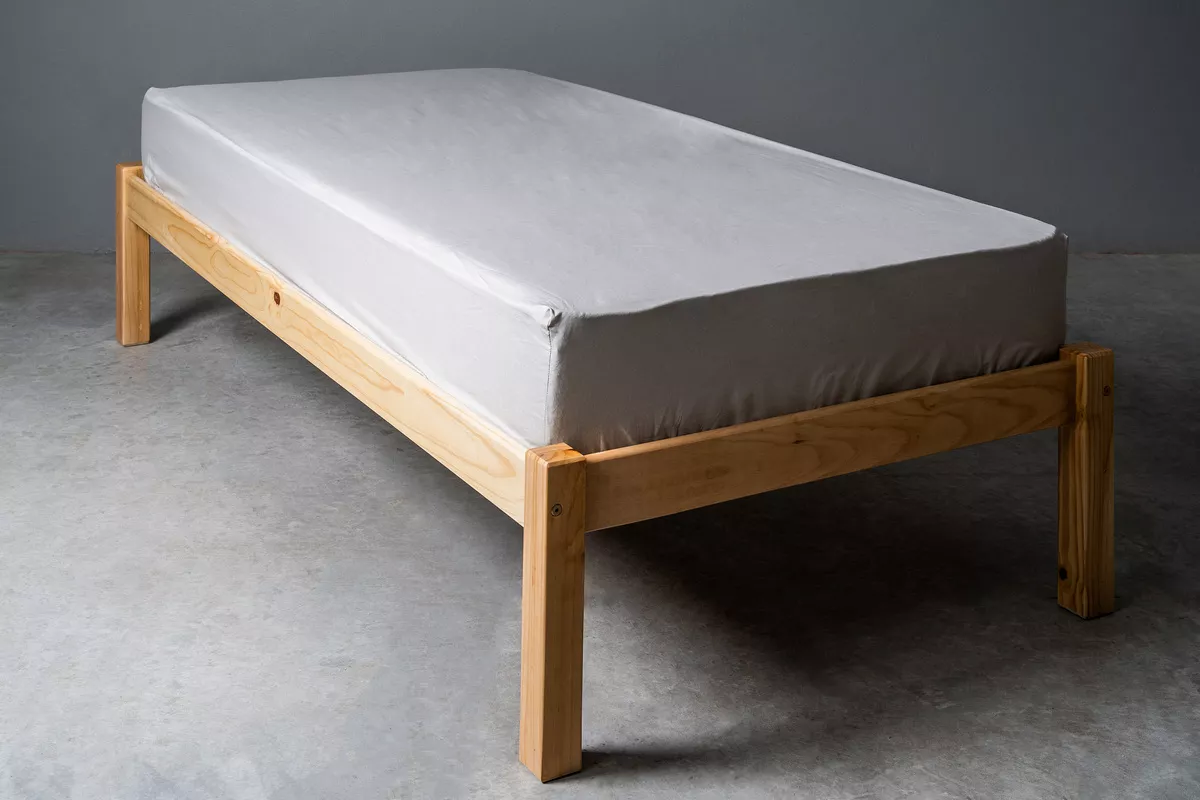Home>Furniture>Bedroom Furniture>What Is An Orthopedic Mattress
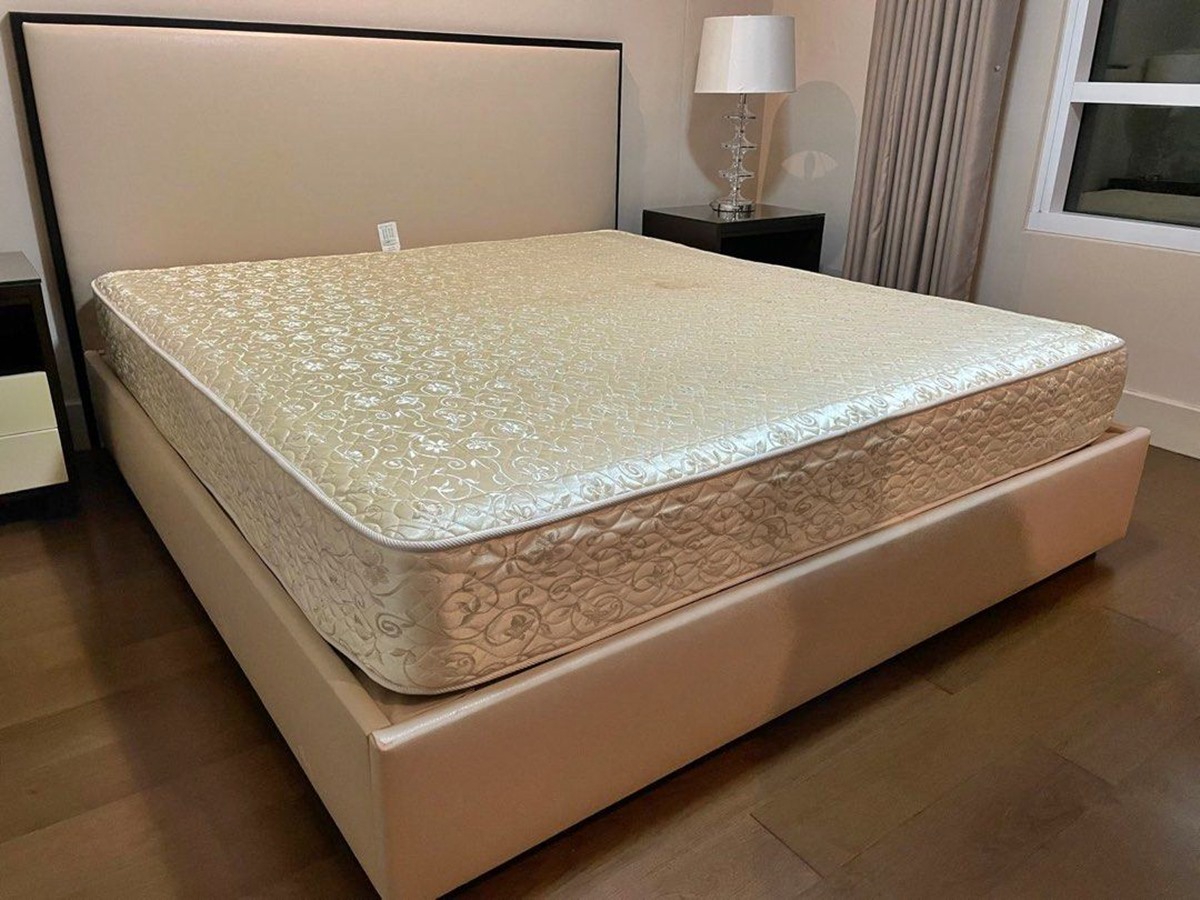

Bedroom Furniture
What Is An Orthopedic Mattress
Published: December 9, 2023
Discover the benefits of an orthopedic mattress for your bedroom furniture. Improve your sleep and alleviate back pain with a quality mattress designed to support your body's natural alignment.
(Many of the links in this article redirect to a specific reviewed product. Your purchase of these products through affiliate links helps to generate commission for Storables.com, at no extra cost. Learn more)
Introduction
Welcome to our comprehensive guide on orthopedic mattresses! If you’re in search of a comfortable and supportive sleep surface, you’ve come to the right place. A good night’s sleep is essential for optimal health and well-being, and choosing the right mattress is a crucial step towards achieving that.
An orthopedic mattress is specifically designed to provide the necessary support and comfort for individuals with back pain, joint issues, or other musculoskeletal conditions. It is crafted with the aim of promoting proper spinal alignment and relieving pressure points, resulting in a restful and rejuvenating sleep experience.
In this article, we will explore the definition, benefits, features, different types, and how to choose the right orthopedic mattress for your needs. We will also debunk common misconceptions and answer frequently asked questions to help you make an informed decision.
So, let’s dive in and discover everything you need to know about orthopedic mattresses!
Key Takeaways:
- Orthopedic mattresses offer pain relief, improved sleep quality, and spinal alignment. They come in various types, each catering to individual needs for a restful and rejuvenating sleep experience.
- Choosing the right orthopedic mattress involves considering firmness, support, materials, durability, and personal preferences. Debunking common misconceptions and seeking professional advice can lead to an informed decision for better sleep and overall well-being.
Read more: What Is An Adjustable Mattress
Definition of an Orthopedic Mattress
An orthopedic mattress is a specialized type of mattress that is designed to provide optimal support and alignment for the spine while sleeping. It is specifically crafted to cater to the needs of individuals with back pain, joint issues, or other musculoskeletal conditions.
Unlike regular mattresses, which are often made with generic comfort and support levels, orthopedic mattresses are engineered to alleviate pressure points, promote proper spinal alignment, and distribute body weight evenly. They are designed with layers of supportive materials, such as memory foam, latex, or pocketed coils, to provide the necessary firmness and contouring for a comfortable sleep experience.
The primary goal of an orthopedic mattress is to maintain the natural alignment of the spine throughout the night. When the spine is properly aligned, it helps relieve strain on the back, neck, and joints, which results in reduced pain and discomfort. Orthopedic mattresses also aim to minimize motion transfer between sleep partners, ensuring uninterrupted sleep.
It’s important to note that not all mattresses labeled as “orthopedic” are actually designed with orthopedic principles in mind. Some companies may use the term as a marketing gimmick. To ensure you’re investing in a genuine orthopedic mattress, look for reputable brands that are known for their expertise in orthopedic support and quality craftsmanship.
Overall, an orthopedic mattress is a specialized sleep surface that caters to the specific needs of individuals seeking enhanced support, pain relief, and improved sleep quality. With its unique design and construction, an orthopedic mattress can help alleviate discomfort and provide a restful night’s sleep.
Benefits of an Orthopedic Mattress
An orthopedic mattress offers a range of benefits that can significantly improve your sleep quality and overall well-being. Let’s explore some of the key advantages:
1. Pain Relief: One of the primary benefits of an orthopedic mattress is its ability to provide pain relief. The specialized design helps alleviate pressure points, distribute body weight evenly, and promote proper spinal alignment. This can bring relief to individuals suffering from back pain, joint issues, arthritis, or other musculoskeletal conditions.
2. Improved Sleep Quality: By offering optimal support and comfort, an orthopedic mattress can greatly improve sleep quality. It minimizes tossing and turning, reduces discomfort, and enables you to achieve a deeper and more restorative sleep. Waking up feeling refreshed and rejuvenated becomes a regular occurrence.
3. Spinal Alignment: Maintaining proper spinal alignment is crucial for overall spinal health. An orthopedic mattress helps align the spine in a neutral position, relieving strain on the back and reducing the risk of developing postural problems and chronic pain.
4. Reduced Pressure Points: Traditional mattresses can create pressure points in certain areas of the body, leading to discomfort and disrupted sleep. Orthopedic mattresses are designed to eliminate or minimize these pressure points, as the supportive materials contour to the body’s curves, providing relief to sensitive areas such as the shoulders, hips, and knees.
5. Motion Isolation: If you share your bed with a partner, you might be familiar with the disturbances caused by their movements during sleep. An orthopedic mattress, particularly those with pocketed coils or memory foam, can absorb and isolate motion, allowing you and your partner to enjoy uninterrupted sleep.
6. Durability: Orthopedic mattresses are typically crafted with high-quality materials that enhance durability. They are designed to withstand regular use without losing their shape or support. This means your investment in an orthopedic mattress can provide you with long-lasting comfort and support.
7. Improved Circulation: When pressure points are alleviated and proper spinal alignment is maintained, an orthopedic mattress can improve blood circulation. Improved circulation allows oxygen and essential nutrients to flow more freely throughout your body, promoting better health and healing.
8. Customization: Orthopedic mattresses often come with the option for customization. Some models allow you to adjust the firmness levels or add additional layers to cater to your specific comfort preferences and needs.
Investing in an orthopedic mattress can prove to be a game-changer, especially for individuals suffering from chronic pain or seeking better sleep quality. The combination of pain relief, improved spinal alignment, and enhanced comfort can have a profound impact on your overall well-being. Take the time to choose an orthopedic mattress that suits your needs and preferences, and experience the incredible benefits it brings to your sleep and daily life.
Features of an Orthopedic Mattress
An orthopedic mattress is designed with specific features that set it apart from traditional mattresses. These features work together to provide optimal support, comfort, and alignment for a restful sleep experience. Let’s explore some of the key features:
1. Firmness: Orthopedic mattresses typically have a firm feel to provide the necessary support for the body. The firmness level varies depending on the individual’s preference and specific needs. A medium-firm to firm mattress is often recommended for individuals with back pain or joint issues, as it helps maintain proper spinal alignment.
2. Support Layers: Orthopedic mattresses are constructed with layers of supportive materials that aid in maintaining spinal alignment and relieving pressure points. These materials may include high-density foam, memory foam, latex, or pocketed coils. Each layer works together to provide targeted support and cushioning where needed.
3. Zoning Technology: Some orthopedic mattresses incorporate zoning technology, which divides the mattress into different zones to provide varying levels of support. This allows for more targeted pressure relief and spinal alignment. For example, the lumbar region may have firmer support to provide extra support to the lower back.
4. Contouring: Orthopedic mattresses often have a contouring effect, where the materials conform to the body’s curves, promoting proper spinal alignment and relieving pressure points. Memory foam and latex are popular materials known for their contouring properties.
5. Edge Support: A good orthopedic mattress will have reinforced edges that provide strong support and prevent sagging when sitting or sleeping near the edge of the bed. This feature maximizes the usable sleep surface and enhances overall durability.
6. Temperature Regulation: Some orthopedic mattresses are designed with cooling properties to prevent overheating during sleep. These mattresses may include breathable fabrics, gel-infused foams, or open-cell structures that promote airflow and dissipate heat.
7. Hypoallergenic Materials: Many orthopedic mattresses are made with hypoallergenic materials, such as natural latex or organic cotton covers. These materials are resistant to allergens, dust mites, and mold, making them suitable for individuals with allergies or sensitivities.
8. Adjustable Base Compatibility: Orthopedic mattresses are often compatible with adjustable bases, allowing you to customize the position of your mattress for better comfort and support. This feature can be particularly beneficial for individuals with specific health conditions or personal preferences.
9. Longevity: Orthopedic mattresses are typically constructed with durable materials and undergo rigorous quality testing. They are designed to offer long-lasting support and retain their shape and comfort over time.
It’s important to note that while these features are common in orthopedic mattresses, the exact specifications may vary across different brands and models. When selecting an orthopedic mattress, consider your specific needs, preferences, and any recommendations from healthcare professionals to ensure you choose the right mattress that will provide the support and comfort your body requires for a restful sleep.
Types of Orthopedic Mattresses
Orthopedic mattresses come in various types, each with its own unique features and benefits. The choice of the right type depends on individual preferences, needs, and sleeping habits. Here are the most common types of orthopedic mattresses:
1. Innerspring Mattresses: These mattresses use a system of interconnected metal coils or springs as the primary support system. Innerspring mattresses offer a traditional feel and a good level of support. Orthopedic innerspring mattresses often include individually pocketed coils, which provide better motion isolation and targeted support.
2. Memory Foam Mattresses: Memory foam mattresses are made from viscoelastic foam that contours to the body’s shape and offers excellent pressure relief. They are known for their ability to conform to each individual’s unique contours and provide optimal spinal alignment. Memory foam mattresses can be a great choice for individuals with back pain or joint issues.
3. Latex Mattresses: Latex mattresses are made from natural or synthetic latex foam. They are known for their durability, breathability, and responsiveness. Latex mattresses offer a good balance of support and comfort, providing contouring and pressure relief without the sinking feeling often associated with memory foam.
4. Hybrid Mattresses: Hybrid mattresses combine the benefits of different materials, typically combining pocketed coils with layers of foam or latex. These mattresses aim to provide the best of both worlds – the supportive and responsive feel of coils with the pressure relief and contouring of foam or latex. Hybrid mattresses are a popular choice for individuals seeking a balance between support and comfort.
5. Pocketed Coil Mattresses: Pocketed coil mattresses, also known as individually wrapped coil mattresses, feature pocketed coils that move independently of each other. This design offers targeted support and less motion transfer, making it an excellent choice for couples or individuals with restless sleep partners.
6. Adjustable Air Mattresses: Adjustable air mattresses allow for customizable support by using air-filled chambers that can be adjusted to different firmness levels. These mattresses often have dual chambers, allowing each side of the bed to be adjusted independently. Adjustable air mattresses are suitable for individuals who want to fine-tune their support or those with specific medical conditions.
Each type of orthopedic mattress offers unique benefits, so it’s essential to consider personal preferences, sleeping habits, and individual needs when choosing the right mattress. It’s also worth noting that within each type, there can be variations in materials, thickness, and construction, so it’s recommended to try out different options and consult with professionals to find the best match for your specific requirements.
Look for an orthopedic mattress with good support and pressure relief to help alleviate back and joint pain. Consider the materials and firmness level that best suit your needs.
Read more: What Is An Eurotop Mattress
How to Choose the Right Orthopedic Mattress
Choosing the right orthopedic mattress is essential to ensure you get the right level of support and comfort for your individual needs. Here are some factors to consider when making your selection:
1. Firmness Level: Orthopedic mattresses are typically firm to provide the necessary support. However, the ideal firmness level may vary depending on your body weight, sleeping position, and personal preferences. Some individuals may require a medium-firm mattress, while others may prefer a firmer option. Consider your comfort level and consult with healthcare professionals if needed.
2. Support and Alignment: Look for a mattress that promotes proper spinal alignment and offers targeted support for your specific areas of concern. A mattress should distribute your body weight evenly and relieve pressure points, especially around the shoulders, hips, and lower back. This helps maintain a neutral spine position and alleviates pain.
3. Material: Consider the materials used in the mattress. Memory foam and latex are known for their contouring properties and pressure relief. Innerspring mattresses with pocketed coils offer good support and motion isolation. Hybrid mattresses combine different materials for a balanced feel. Choose a material that suits your preferences and provides the desired level of comfort and support.
4. Edge Support: Check if the mattress has reinforced edges that provide strong support when sitting or sleeping near the edge. This feature increases the usable sleep surface and prevents sagging over time.
5. Temperature Regulation: If you tend to sleep hot, consider a mattress with cooling features such as breathable fabrics, gel-infused memory foam, or open-cell structures that promote airflow and dissipate heat.
6. Durability: Look for high-quality materials and reputable brands known for their durability and craftsmanship. A good orthopedic mattress should be able to withstand regular use without losing its shape or support over time.
7. Price: Set a budget for your orthopedic mattress purchase. While investing in a good mattress is important for your sleep quality and comfort, it’s also crucial to find a mattress that fits within your budget. Compare prices and features to find the best value for your money.
8. Warranty and Sleep Trial: Check the warranty and sleep trial offered by the mattress manufacturer. A generous warranty period and a comfortable sleep trial can provide peace of mind and ensure that you have enough time to test out the mattress and make sure it meets your needs.
9. Personal Considerations: Take into account any specific health conditions, allergies, or personal preferences that may influence your choice. For example, individuals with allergies may prefer mattresses with hypoallergenic materials, while those with back pain may benefit from mattresses with adjustable base compatibility.
10. Reviews and Recommendations: Read customer reviews and seek recommendations from professionals or trusted sources. Hearing about others’ experiences with the mattress can provide valuable insights and help you make an informed decision.
Choosing the right orthopedic mattress involves considering factors such as firmness, support, materials, durability, and personal preferences. Take your time to research, try out different options, and consult with professionals if needed. Investing in a quality orthopedic mattress can significantly improve your sleep quality and overall well-being.
Common Misconceptions about Orthopedic Mattresses
When it comes to orthopedic mattresses, there are several misconceptions that can lead to confusion or misinformation. Let’s debunk some of the most common misconceptions:
1. Orthopedic mattresses are only for individuals with back problems: While orthopedic mattresses are often recommended for individuals with back pain or musculoskeletal conditions, they can benefit anyone looking for enhanced support and comfort during sleep. They can help prevent potential issues and promote proper spinal alignment even for individuals without specific back problems.
2. Firm mattresses are always better: It is a common misconception that orthopedic mattresses must always be firm. While a firm mattress can provide support, it’s important to find the right balance between support and comfort. The ideal firmness level may vary depending on individual preferences, body weight, and sleeping positions. Some individuals may find a medium-firm mattress more suitable for their needs.
3. Orthopedic mattresses are uncomfortable: Many people assume that orthopedic mattresses are uncomfortable solely based on their firmness level. However, orthopedic mattresses are designed to offer both support and comfort. They use specialized materials and technologies to provide pressure relief, proper spinal alignment, and a restful sleep experience.
4. Orthopedic mattresses are too expensive: While orthopedic mattresses can come with a higher price tag compared to traditional mattresses, they are often an investment in your sleep quality and overall well-being. That being said, there are orthopedic mattresses available at different price points, and with proper research and comparison, it is possible to find an orthopedic mattress that fits your budget.
5. Orthopedic mattresses are only available in one type: Orthopedic mattresses are available in various types, such as memory foam, latex, innerspring, and hybrid mattresses. Each type offers different features and benefits, allowing individuals to choose according to their comfort preferences and needs.
6. Orthopedic mattresses cure back pain: While orthopedic mattresses can provide support and alleviate pain for many individuals, they are not a cure for underlying medical conditions. Consultation with healthcare professionals is important for accurate diagnosis and treatment of back pain or other musculoskeletal issues. Orthopedic mattresses can complement the treatment process by providing proper support and comfort during sleep.
7. All mattresses labeled as “orthopedic” are the same: Not all mattresses labeled as “orthopedic” are designed with the same level of expertise or quality. It’s important to do thorough research, read reviews, and choose reputable brands known for their commitment to orthopedic support and craftsmanship.
Remember, choosing an orthopedic mattress involves considering individual needs, preferences, and consulting with healthcare professionals if necessary. By debunking these common misconceptions, you can make a more informed decision and find the right orthopedic mattress for a comfortable and healthy sleep experience.
Frequently Asked Questions about Orthopedic Mattresses
Here are some commonly asked questions about orthopedic mattresses, along with their answers:
-
Are orthopedic mattresses suitable for everyone?
Orthopedic mattresses can benefit a wide range of individuals, especially those with back pain, joint issues, or other musculoskeletal conditions. However, the ideal mattress choice ultimately depends on individual preferences and needs.
-
How long do orthopedic mattresses last?
The lifespan of an orthopedic mattress can vary depending on the quality of materials used and how well it is maintained. On average, a good quality orthopedic mattress can last between 8 to 10 years with proper care.
-
Do orthopedic mattresses require a specific type of bed frame?
Orthopedic mattresses can be used with a variety of bed frames, including platform beds, adjustable bases, or traditional box springs. It’s important to ensure that the chosen bed frame provides adequate support for the mattress.
-
Can I use a mattress topper with an orthopedic mattress?
Using a mattress topper is a personal choice. While it can add an extra layer of cushioning or adjust the firmness level, it’s important to consider the overall support and alignment provided by the orthopedic mattress itself.
-
Can orthopedic mattresses help with sleep apnea?
Orthopedic mattresses are not specifically designed to treat sleep apnea, which is a medical condition. However, improved support and proper spinal alignment provided by an orthopedic mattress can contribute to better sleep quality, potentially reducing some sleep apnea symptoms.
-
Does the weight of a person affect the choice of an orthopedic mattress?
Yes, the weight of an individual can impact the choice of an orthopedic mattress. Heavier individuals may require a firmer mattress to ensure adequate support, while lighter individuals may find a medium-firm mattress more suitable. It’s important to find a mattress that provides proper support and alignment for your weight range.
-
Can I try out an orthopedic mattress before buying?
Yes, it’s recommended to try out an orthopedic mattress before making a purchase. Many mattress retailers offer sleep trials, allowing you to test the mattress for a specific period and return it if you’re not satisfied. This can help ensure that the mattress meets your comfort and support needs.
-
Do orthopedic mattresses require any special maintenance?
Orthopedic mattresses generally don’t require any special maintenance. However, it’s important to rotate the mattress regularly to promote even wear and distribute body weight more evenly. Additionally, using a mattress protector can help keep the mattress clean and protect it from spills or stains.
If you have any additional questions or concerns about orthopedic mattresses, it’s always a good idea to consult with healthcare professionals or mattress experts who can provide personalized advice based on your specific needs.
Conclusion
Investing in the right orthopedic mattress is crucial for a good night’s sleep and overall well-being. These specialized mattresses are designed to provide optimal support, promote proper spinal alignment, and alleviate pain and discomfort. By choosing an orthopedic mattress, you can improve your sleep quality, reduce pressure points, and enhance your overall sleep experience.
Throughout this article, we have explored the definition of an orthopedic mattress, its benefits, key features, different types available, and how to choose the right one for your needs. We have also debunked common misconceptions and answered frequently asked questions to provide a comprehensive understanding of orthopedic mattresses.
Remember, when selecting an orthopedic mattress, consider factors such as firmness, support, materials, durability, and personal preferences. Take the time to research, read customer reviews, and seek recommendations from professionals or trusted sources. It’s essential to find a mattress that aligns with your specific needs, ensuring that you get the comfort and support necessary for a restful sleep.
Investing in your sleep is investing in your overall health and well-being. By choosing the right orthopedic mattress, you can wake up feeling refreshed, energized, and ready to take on the day.
Thank you for joining us on this journey of exploring orthopedic mattresses. We hope this guide has provided valuable insights and equipped you with the knowledge to make an informed decision. Here’s to many restful nights of comfortable sleep!
Frequently Asked Questions about What Is An Orthopedic Mattress
Was this page helpful?
At Storables.com, we guarantee accurate and reliable information. Our content, validated by Expert Board Contributors, is crafted following stringent Editorial Policies. We're committed to providing you with well-researched, expert-backed insights for all your informational needs.

